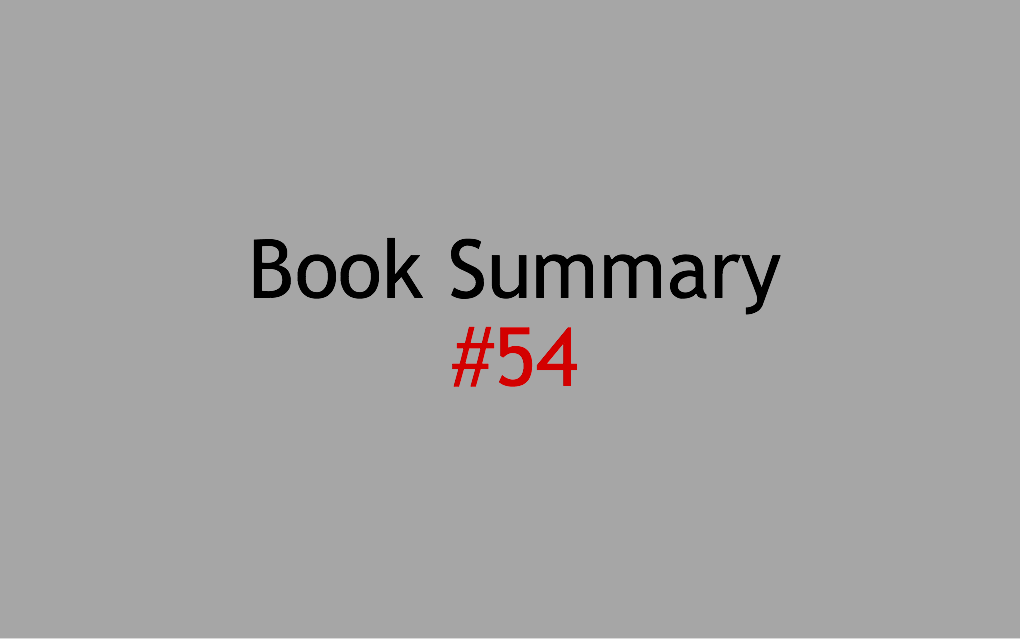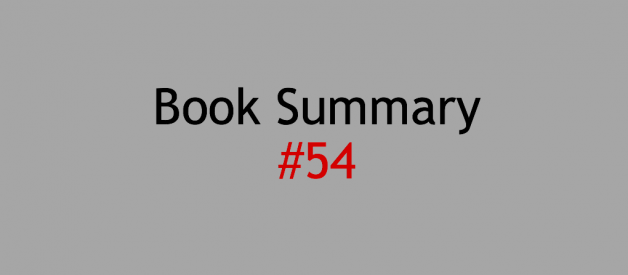You can find all my book summaries ? here.
?The Undoing Project? gives lots of insights about the birth of heuristics, bias? and behavioural psychology. It is a biography about the two psychologists and writers Daniel Kahneman (?Danny?) and Amos Tversky. It also provides an incredible insight into Israel?s struggles post-WWII until the 90?s.
It was for me personally super interesting, as I?ve read dozens of journals co-authored by either or by both main characters ? the last one being ?Thinking Fast and Slow?.
Danny Kahneman & Amos Tversky
- Israeli
- Both army psychologist ? Kahneman developed scoring system for early recruits to predict how successful they will be
- First taught and met in Israeli university then both moved to the US, but kept coming back to Israel to teach and fight in wars
- Danny ? lots of emotional Ups and Downs and doubt; Amos ? charming, clever and confident
- Danny and Amos were inseparable for decades spending all day together, locked up the two of the, laughing and writing a couple of sentences a day
- They first wrote Journals in psychology then moved into other areas such as economics
- Later in their lives they ?broke up? as Danny was left in Amos? shadow
- In the end Amos? died before Danny and Danny received an Nobel prize
Their Work
This turns out to be a very powerful way of doing social science. That?s how Amos would begin: by undoing the mistakes of others.
- Undid lots of what psychologists, experts, doctors, economists believed in -> most prominently, experts are often wrong and humans are not rational but have systematic biases
They provided a language and a logic for articulating some of the pitfalls people encounter when they think. Now these mistakes could be communicated?
Some of the Discussed Psychological Principles
- Endowment Effect ? stuff you own, you value as more than if you didn?t own it
- Confirmation Bias ? we look for data/examples which confirm our belief and turn a blind eye on stuff that contradicts it
- Regression to the Mean ? people have odd days doing well and less well, but they have an average they come back to
- Framing ? it matters how you ask a question or make a statement ? loss vs gain
- Heuristics ? rules of thumb we use to make quick approximate judgements
- Representativeness/Recency Bias ? because we can think of something faster (it was most recently / bigger impact) we think it is more likely / common than it really is
- Anchoring ? hearing/stating a random number before a challenge to estimate something is used as an anchor to work/negotiate/estimate from even if it is completely unrelated
- Creeping determinism ? in hindsight we always think that stuff was bound to happen, but at the time it actually was unpredictable
- Last Impressions are Lasting ? same experiences, but the end made the memory of the experience different
- Regret ? When people make a decision, they did not seek to maximize utility. They sought to minimize regret.
You can find all my book summaries ? here.
?My Newsletter ? SUBSCRIBE HERE?
Batko OS
The World as a System
batko.substack.com



